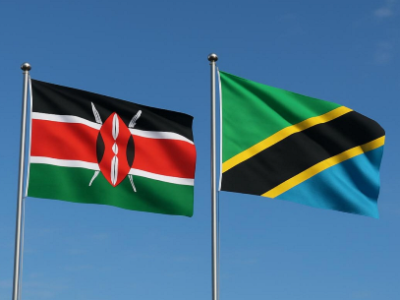By Daniel Tambee
On the night of October 20, 2020, gunfire echoed through the Lekki Tollgate in Lagos as soldiers opened fire on peaceful protesters demanding an end to police brutality. It was a moment that shocked Nigeria and the world, but in the weeks that followed, many who sought accountability found only silence, denial, and a disturbing disappearance of evidence.
Five years later, the scars remain. Despite disbanding the infamous SARS unit, young Nigerians, especially creatives, remote workers, and tech-savvy professionals, continue to face routine harassment, arbitrary arrests, and extortion by the police. Complaints number in the thousands, yet justice remains elusive. In many cases, the problem isn’t just abuse— it’s erasure. Files vanish. Videos are dismissed. Witnesses disappear. The truth is buried.
This is the problem I set out to solve when I created Padi Protocol, a blockchain-based platform that helps citizens document police abuse and connect with legal support. The goal is simple: make evidence permanent and justice more accessible.
Blockchain is often associated with cryptocurrency and speculation, but at its core, it’s a technology for truth. Records stored on a blockchain cannot be altered or deleted—a feature I realised could be used not just for finance, but for justice.
With Padi Protocol, victims can upload videos, photos, and voice notes of abuse. The files are stored securely using decentralised technology, and the metadata is recorded permanently on the blockchain. It’s a way of saying: “This happened. You can’t delete it.”
But we didn’t stop there. Every user receives a digital ID and is connected to a vetted Nigerian lawyer— a “padi”—who understands both the law and the technology. These lawyers offer affordable guidance and legal support, helping to bridge the wide gap between citizens and the courtroom.
Take Tobi Adebare, a 29-year-old web designer from Lagos.
In April 2023, he was stopped by police on his way to a tech event—simply for carrying a laptop and smartphone. Accused of fraud and threatened with detention, he was only released after paying a bribe.
“I felt powerless,” he says. “But with Padi Protocol, I uploaded everything—my statement, photos, timestamps. Even though I haven’t gone to court yet, I feel safer knowing it’s all recorded.”
In Ibadan, Anita Ojo used the platform when her younger brother was detained, beaten, and moved without notice. “We couldn’t find him. It was like he vanished,” she recalls. With help from the app, she documented his ordeal and was connected with a pro bono lawyer who took on the case.
“These stories aren’t isolated,” says Tambee. “This is happening to thousands of Nigerians, especially those who are young, talented, and unafraid to challenge the system.”
The answer is yes. Thanks to Nigeria’s Evidence Act (2011) and its 2023 amendment, electronic and blockchain records are now admissible in court, provided they’re authentic and reliable. Courts have already accepted social media messages, emails, and digital documents in high-profile cases. Blockchain records, with their built-in tamper-proofing, offer even greater credibility.

Daniel Tambee
Each case logged on the Padi Protocol is reviewed by lawyers trained to ensure that the evidence meets legal standards. It’s not just about recording abuse — it’s about preparing for court.
Adoption hasn’t been easy. Many Nigerians are sceptical of blockchain due to past scams and failed crypto ventures. Infrastructure challenges like poor internet and power supply also affect reach. And perhaps most predictably, some elements within law enforcement are resistant to a platform designed to hold them accountable.
But the tide is turning. Informal networks of users—or “padi circles”—have emerged, sharing safety tips, legal knowledge, and emotional support. The app is becoming more than a tool; it’s becoming a movement.
“Padi Protocol is our way of saying we won’t be silenced again,” says one early user. “If they erase the evidence, we put it back, permanently.”
Daniel Tambee, a blockchain developer and founder of Padi Protocol. He is a DevOps engineer at SBTS. He can be reached at [email protected]






























